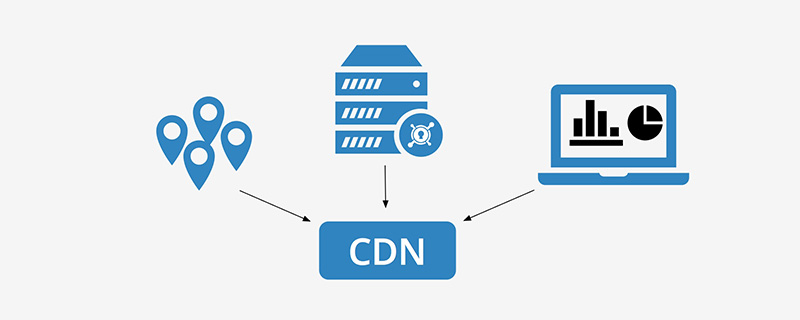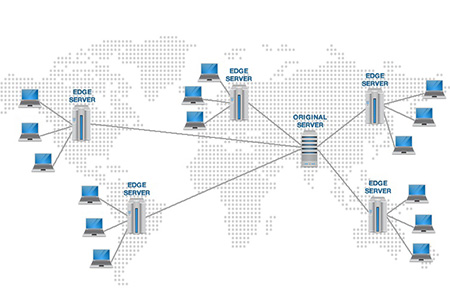
CDN, or Content Delivery Network, is a highly distributed server (network) system platform that allows the rapid transmission of assets required to load Internet content, including HTML pages, javascript files, style sheets, images and videos, etc. . Let’s introduce it in detail below, hoping it will be helpful to everyone

CDN can deliver HTML pages and other content to users based on the user’s geographical location, web page source and content delivery server Web content.
How does CDN work?
At its core, a CDN is a network of servers connected together with the goal of delivering content as quickly, cheaply, reliably and securely as possible. To improve speed and connectivity, CDNs place servers at exchange points between different networks. By connecting to these high-speed and highly interconnected exchange points, CDNs are able to reduce the cost and transfer time of high-speed data transfers.

#CDN copies the pages of the website to a network of servers scattered in different geographical locations and caches the content of the pages. When a user makes a request, it redirects the request from the originating site's server to the server closest to the user, where it responds to the request and delivers the cached content. The CDN will also communicate with the originating server to serve any content that was not previously cached.
What are the advantages of CDN?
1. Improve website loading time
CDN allows users to connect to geographically closer data centers without having to connect to the website’s original Anywhere the server may exist. This means faster service.
CDN also reduces the amount of data transferred by reducing file size using strategies such as minification and file compression. Small file size means faster loading times.
2. Reduce server load and reduce costs
Through caching and other optimizations, CDN allows content to be distributed across multiple servers instead of placing them in a large on the server.
Because of its higher reliability, operators can provide high-quality content while providing a high level of service with low network server load, thereby reducing costs.
3. Improve website security
CDN can protect content through digital rights management and improve security by limiting access through user authentication. Use it to increase the security of your servers, data and used applications.
Summary: The above is the entire content of this article, I hope it will be helpful to everyone's study.
The above is the detailed content of What is a CDN? What is the use?. For more information, please follow other related articles on the PHP Chinese website!